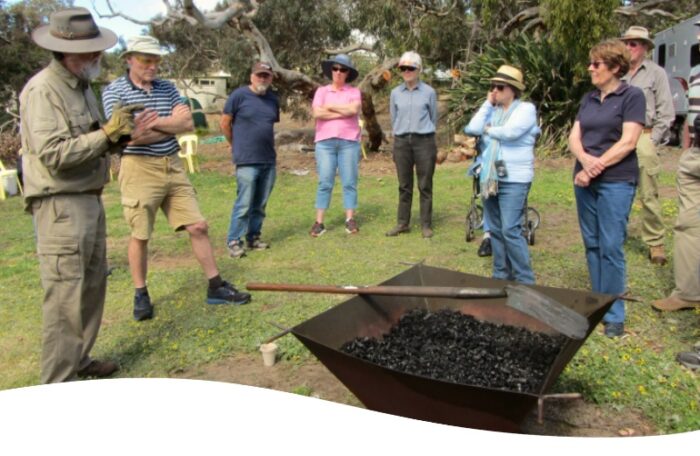Using biochar to reduce atmospheric CO2 and improve soil.

Maccy Biochar is delivering another way to reduce our carbon footprint by embracing a simple, low-tech method anyone can use in their own backyard.
Carbon in our atmosphere is stored by plants and used for photosynthesis. When trees and plants are burned, or breakdown and rot after they die, that carbon is released back into the atmosphere. While planting more trees is a great way to soak carbon back out of our air, biochar also locks carbon away in the soil – often for thousands of years.
What is biochar?
Biochar is the outcome of burning agricultural by-product in a high-heat, low-oxygen process called pyrolysis. It looks a lot like charcoal, however, charcoal is used as a fuel that ultimately releases carbon back into the atmosphere when it is burnt. Biochar is typically 75%-85% carbon, with the remainder being ash and residual oils. It is intended to lock carbon away, and keep it locked away.
Each tonne of carbon that is locked away represents approximately 3.6 tonne of CO2 removed from the atmosphere. Which means that every 1 tonne of biochar produced, removes approximately 2.5 tonne of CO2.
But creating cleaner air is not the only benefit of biochar.
Environmental impacts of biochar
The structure of biochar is highly porous, which means it is very effective at storing water and slowing runoff. It also provides an excellent environment to store beneficial soil bacteria, nutrients and minerals, reducing the need for fertiliser while helping restore the health of the soil and the micro-organisms that dwell within it.

Biochar can even be added to feed for livestock. Its adsorptive properties can reduce gases such as methane and improve general gut health. Once passed through the digestive system, it can be naturally incorporated back into the soil by dung beetles.
The lightweight, porous structure of biochar also makes it a great option to use as bedding or litter material where high levels of moisture, odour and gases like ammonia are produced. Additionally, this practice can pre-load the biochar with various compounds that are beneficial to the soil.
Where to find out more
Maccy Biochar, based in Macclesfield, is a community-based, not-for-profit group that is now looking to help other community groups, farmers and interested parties to set up their own biochar kilns.
